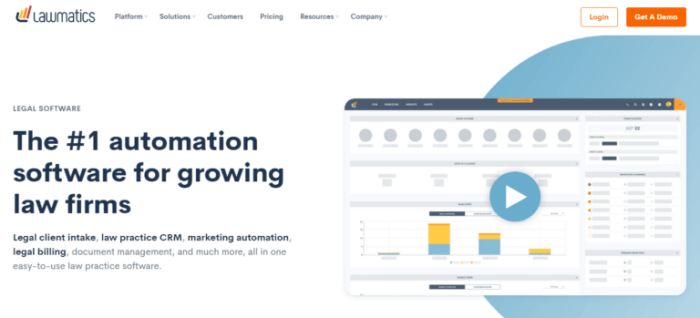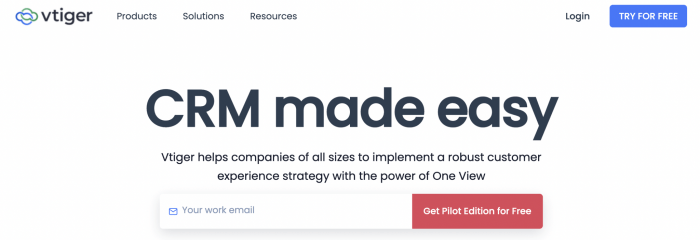Crm software for law firms – In today’s competitive legal landscape, efficiency and client satisfaction are paramount. Law firms, regardless of size, are increasingly relying on Customer Relationship Management (CRM) software to streamline operations, improve client communication, and ultimately, boost profitability. This comprehensive guide delves into the crucial role of CRM software within law firms, exploring its benefits, key features, selection considerations, and frequently asked questions.
Understanding the Benefits of CRM for Law Firms
Implementing a robust CRM system offers numerous advantages for law firms of all sizes. These benefits extend beyond simple contact management, impacting various aspects of the firm’s operations:
Improved Client Management
- Centralized Client Data: A CRM consolidates all client information – contact details, case history, communication logs, documents – in one accessible location, eliminating the need for scattered spreadsheets and emails.
- Enhanced Communication: Streamlined communication channels ensure timely and effective interactions with clients, fostering stronger relationships and improving client satisfaction. Features like automated email sequences and integrated calendars help maintain consistent contact.
- Personalized Client Experiences: By accessing comprehensive client profiles, lawyers can tailor their approach, addressing individual needs and concerns more effectively. This personalized touch strengthens client loyalty and referrals.
Increased Efficiency and Productivity
- Automated Tasks: CRM software automates repetitive tasks such as appointment scheduling, reminder emails, and report generation, freeing up valuable time for lawyers and staff to focus on core legal work.
- Improved Case Management: Track case progress, deadlines, and assigned tasks seamlessly. Real-time dashboards provide clear overviews, enabling proactive management and preventing missed deadlines.
- Better Collaboration: Internal communication and collaboration are significantly improved with features like shared calendars, task assignments, and secure document sharing within the CRM system.
Enhanced Business Development
- Lead Management: Effectively track and nurture leads, identifying potential clients and converting them into paying customers. CRM systems often include lead scoring and pipeline management tools.
- Improved Marketing and Reporting: Gain valuable insights into client behavior and marketing campaign effectiveness through detailed reporting and analytics. This data-driven approach helps optimize marketing strategies.
- Business Intelligence: CRM systems provide valuable data insights into firm performance, enabling informed decision-making regarding resource allocation, staffing, and strategic planning.
Key Features to Look for in a Law Firm CRM
Not all CRM systems are created equal. When selecting a CRM for your law firm, consider the following essential features:

Source: webfx.com
Client Relationship Management Features:, Crm software for law firms
- Contact Management: Comprehensive contact storage with customizable fields for relevant client information.
- Communication Tracking: Record all client interactions (email, phone calls, meetings) in a centralized location.
- Case Management: Track case progress, deadlines, and associated documents.
- Document Management: Secure storage and retrieval of client documents.
- Calendar and Scheduling: Integrated calendar for scheduling appointments and managing lawyer availability.
Legal-Specific Features:
- Matter Management: Detailed tracking of legal matters, including billing, deadlines, and associated tasks.
- Conflict of Interest Checks: Automated checks to prevent conflicts of interest.
- Time Tracking and Billing: Accurate time tracking and automated billing functionalities.
- Compliance Features: Integration with relevant legal compliance regulations and data security protocols.
- Legal Specific Reporting: Generating reports on key legal metrics.
Integration and Scalability:
- Third-Party Integrations: Seamless integration with other essential software, such as accounting software, email platforms, and document management systems.
- Scalability: The ability to adapt to the firm’s growth and evolving needs.
- User-Friendliness: An intuitive interface that is easy for all staff members to use effectively.
Choosing the Right CRM for Your Law Firm: Crm Software For Law Firms
Selecting the appropriate CRM involves careful consideration of your firm’s specific needs and budget. Factors to consider include:
- Firm Size and Structure: A small firm may require a simpler, more affordable solution compared to a large firm with complex operational needs.
- Budget: CRM solutions range in price, from affordable cloud-based options to more expensive enterprise-level systems.
- Required Features: Prioritize the features that align with your firm’s specific requirements and workflows.
- Integration Capabilities: Ensure compatibility with existing software and systems.
- Vendor Support: Choose a vendor that offers reliable technical support and ongoing training.
Frequently Asked Questions (FAQ)
- Q: What is the cost of CRM software for law firms? A: The cost varies significantly depending on the features, vendor, and number of users. Cloud-based options are often more affordable than on-premise solutions. Expect to pay a monthly or annual subscription fee.
- Q: How long does it take to implement a CRM? A: Implementation time depends on the complexity of the system and the firm’s size. It can range from a few weeks to several months.
- Q: What are the potential challenges of implementing a CRM? A: Challenges include data migration, user adoption, and integration with existing systems. Thorough planning and training are crucial for successful implementation.
- Q: Is cloud-based CRM better than on-premise? A: Cloud-based CRM offers advantages like accessibility, scalability, and lower upfront costs. On-premise solutions may offer greater control over data security but require significant upfront investment and IT infrastructure.
- Q: How can I ensure data security with a CRM? A: Choose a vendor with robust security measures, including data encryption, access controls, and regular security audits. Comply with all relevant data privacy regulations.
Conclusion
Implementing a CRM system is a strategic investment that can significantly enhance the efficiency and profitability of a law firm. By carefully considering the factors discussed above and selecting a solution that aligns with your firm’s specific needs, you can unlock the full potential of CRM technology and elevate your client relationships to new heights.
Resources
- American Bar Association (For general legal information and resources)
- Law.com (For legal news and industry insights)
- [Add links to reputable CRM software vendors]
Ready to transform your law firm’s operations? Contact us today for a free consultation and discover how the right CRM can benefit your practice!
Q&A
What are the key features to look for in a law firm CRM?
Essential features include robust contact management, secure document storage, case management capabilities, calendaring and scheduling tools, time tracking, and reporting/analytics dashboards.
How much does CRM software for law firms typically cost?
Pricing varies greatly depending on the features, number of users, and vendor. Expect to find options ranging from affordable monthly subscriptions to more expensive enterprise solutions.
How long does it take to implement a CRM system?

Source: teamwave.com
Implementation time depends on the complexity of the system and the firm’s size. It can range from a few weeks for simpler systems to several months for more extensive implementations.
What kind of training is needed for staff to use a law firm CRM?
Most vendors provide training resources, including online tutorials, webinars, and sometimes on-site training. The level of training required will depend on the software’s complexity and the staff’s technical skills.
